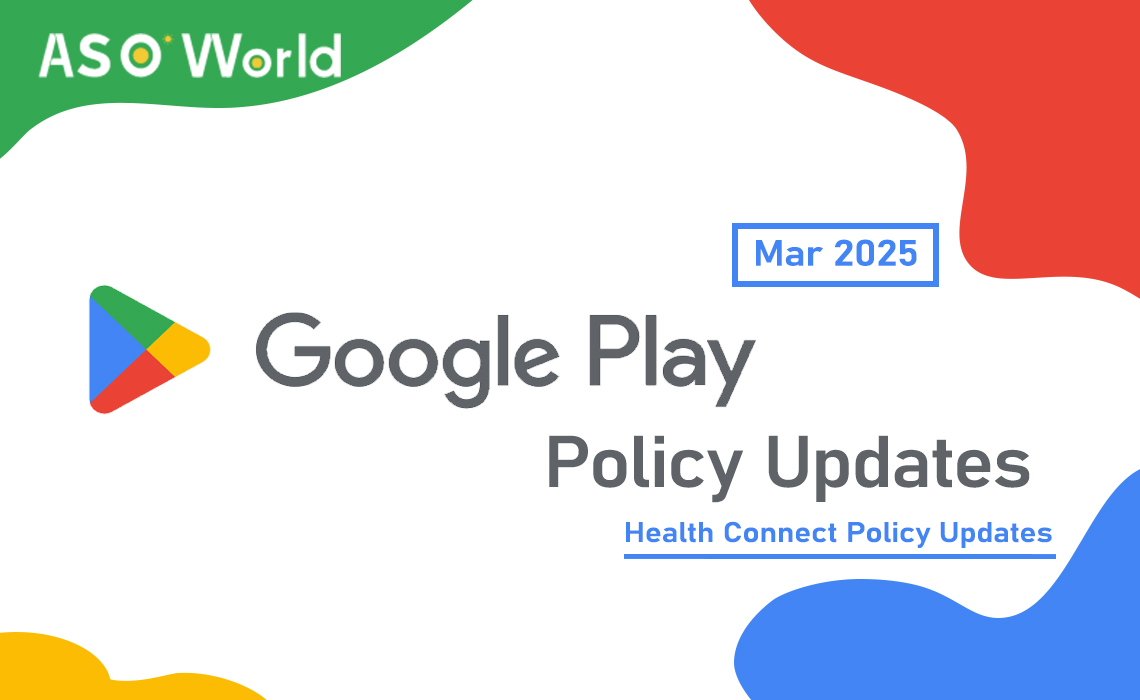





Google Play enforces stricter rules on Health Connect apps, requiring clear justifications, enhanced privacy measures, and compliance with new data-sharing policies.

On March 5, 2025, Google Play announced updates to its Health Connect policy, focusing on stricter safeguards for handling sensitive health record data.
These changes, effective immediately, aim to enhance user privacy and ensure responsible data use by developers.
From an App Store Optimization (ASO) perspective, this shift requires developers to adapt their strategies to maintain compliance while optimizing app visibility and user trust.
This article breaks down the policy updates, offers expert insights, and provides actionable guidance for app developers.
To access Health Connect data, apps must meet specific eligibility requirements.
Only applications with justified use cases will be approved. Approved use cases include:
Fitness & Wellness – Apps that track health metrics and provide personalized recommendations.
Medical Care – Apps that help users manage clinical care, medications, or chronic conditions.
Human Research – Apps supporting clinical studies with proper ethical approvals.
Corporate Wellness & Rewards – Platforms that encourage healthy habits through incentives.
Games – Apps integrating fitness-based gameplay mechanics.
Developers should review the Health Connect policy requirement FAQs for further details.
When requesting Health Connect permissions, developers must explain:
Why the app needs access to specific health data types.
How this access benefits the user experience.
What privacy and security measures are in place to protect user data.
A new section in Play Console will allow developers to submit these justifications. Requests lacking sufficient detail may be denied.
Google Play is implementing stricter rules on:
User consent requirements – Users must be clearly informed about data collection and usage.
Data sharing restrictions – Apps cannot share health data for undisclosed purposes.
Security measures – Developers must implement encryption, access controls, and regular security assessments.
⚠️ Failure to comply may result in app removal from Google Play.

August 31, 2024 – New Health Connect permission request process begins in Play Console.
January 22, 2025 – Existing apps must complete the new Health Connect declaration form.
March 5, 2025 – Updated policy enforcement begins.
Apps that fail to transition by these deadlines risk losing access to Health Connect data or being removed from Google Play.
For apps targeting WearOS or Android 16+, additional considerations apply.
The policy update introduces more granular android.permission.health permissions, replacing BODY_SENSORS permissions.
Developers working on newer Android versions must update their permission requests accordingly to maintain compliance.
👉 Health App Marketing Solutions
This policy update marks a significant shift in how health-related apps handle sensitive user data on Google Play.
The stricter eligibility criteria and justification requirements will likely reduce misuse of health data, ensuring only trusted apps can access it.
However, these changes also introduce additional compliance burdens for developers, requiring more transparency and security measures.
From an ASO perspective, apps that successfully align with these new requirements can gain a competitive edge by emphasizing privacy and security compliance in their Play Store listings.
Highlighting adherence to Google's policies in app descriptions and promotional materials can build user trust and improve conversion rates.
Developers should also anticipate potential delays in approval due to the more rigorous review process and plan accordingly.

Get FREE Optimization Consultation
Let's Grow Your App & Get Massive Traffic!
All content, layout and frame code of all ASOWorld blog sections belong to the original content and technical team, all reproduction and references need to indicate the source and link in the obvious position, otherwise legal responsibility will be pursued.